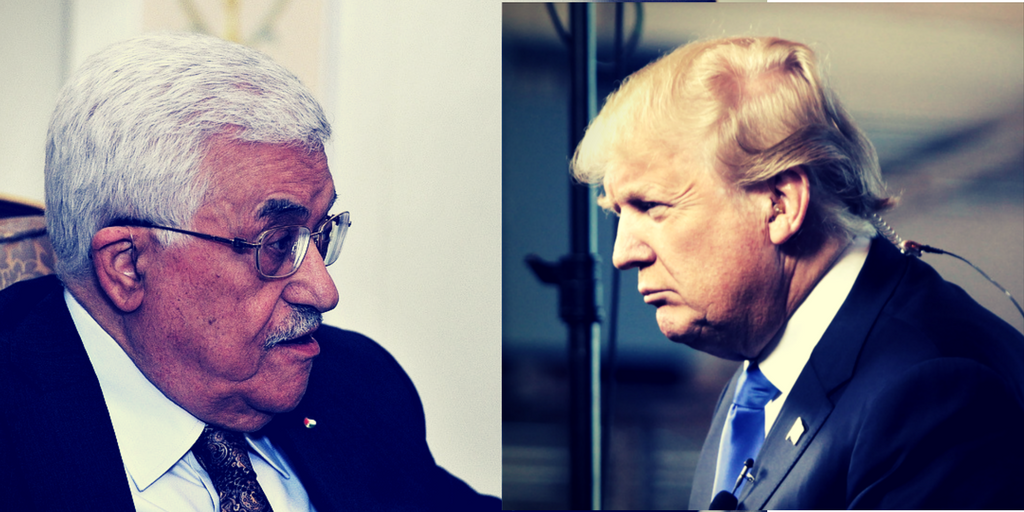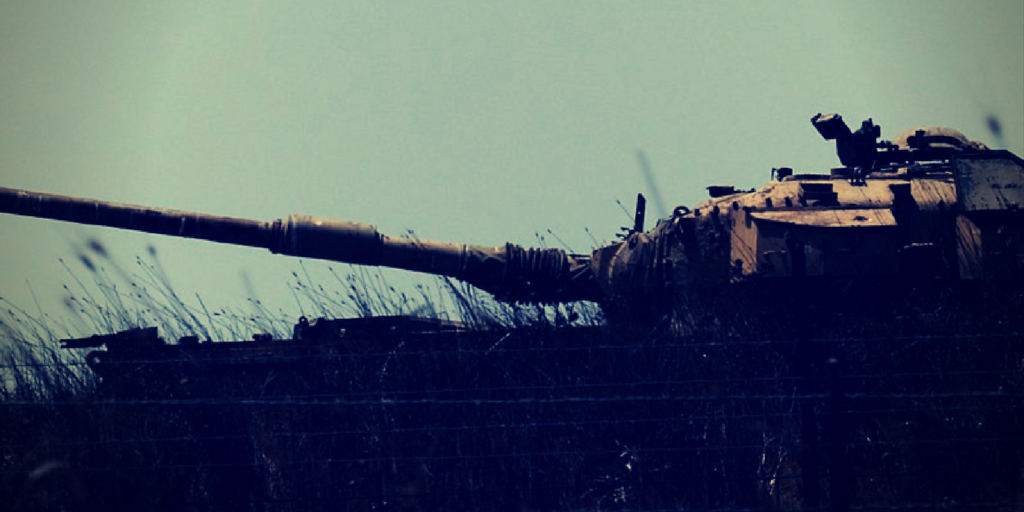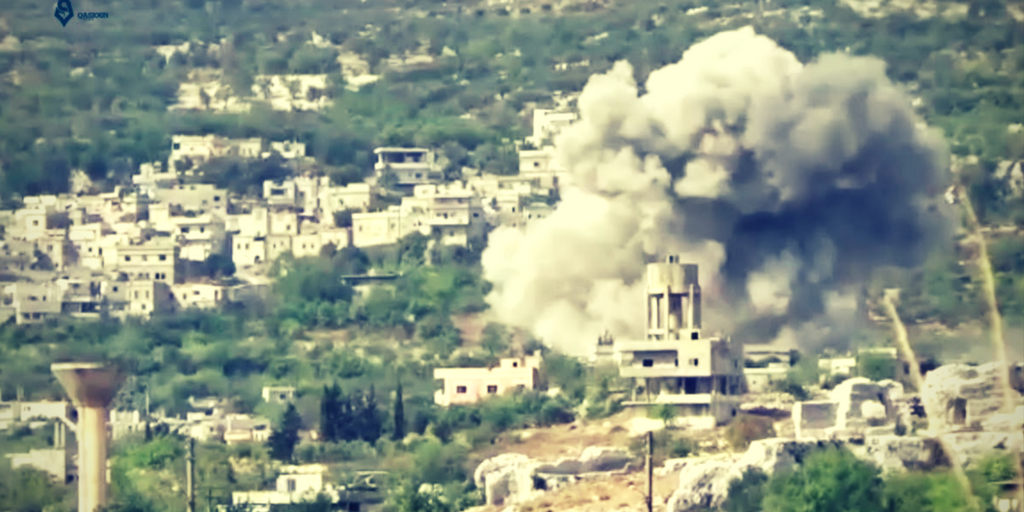“Iran will become a nuclear power. The only mystery over how that will happen is whether Obama was inept or whether he deliberately sought to make the theocracy…strategic power.”- Victor Davis Hanson
In its determination to secure a nuclear deal with Iran, the Obama administration derailed an ambitious law enforcement campaign targeting drug trafficking by the Iranian-backed terrorist group Hezbollah, even as it was funneling cocaine into the United States…Meanwhile, Hezbollah — in league with Iran — continues to undermine U.S. interests in Iraq, Syria and throughout wide swaths of Latin America and Africa, including providing weapons and training to anti-American Shiite militias – Josh Meyer, The secret backstory of how Obama let Hezbollah off the hook, Politico, Dec. 18, 2017.
It is becoming clear that the liberal President Obama…in complete contradiction of his saintly statements, effectively gave a green light to an entire web of ongoing crimes, based on his perception – ridiculous in itself – that it was in America’s national interest to do so—Prof. Abraham Ben-Zvi, No moral backbone Dec. 19, 2019,
The really chilling aspect of the Obama incumbency is that it is genuinely difficult to diagnose whether the abysmal results we see represent a crushing failure of his policies or a calculated success; whether they are the product of chronic ineptitude or purposeful foresight; whether they reflect myopic misunderstanding, moronic incompetence or malicious intent. – Into the Fray: Will the West Withstand The Obama Presidency?, Nov. 28, 2013.
Earlier this week, a scorching piece of investigative journalism in the widely-read political publication, Politico, catapulted the ill-conceived 2015 Iran nuclear deal, mendaciously railroaded through by the Obama administration, back into the center of media attention.
Well, sort of.
No record in “The paper of record”?
For although numerous media channels did swoop down on the report that, in order to secure some agreement with Tehran over its nuclear program, the Obama White House deliberately strove to obstruct an extensive Drug Enforcement Administration operation, codenamed “Project Cassandra”, targeting the Iran-backed terror group, Hezbollah–it appears to have been studiously ignored by several major Obamaphilic outlets.
Indeed, Google as I might, I could find nary a reference—even the most oblique or remote— in the New York Times to the almost 15,000 word investigation. Or in the LA Times. Or the Washington Post. Or on CNN. Or MSNBC…
The Wall Street Journal (WSJ), on the other hand, did address the matter. In an editorial headlined “Obama’s Pass for Hezbollah”, it called for a Congressional investigation into the allegations that the Obama administration “had shut down, derailed or delayed numerous…Hezbollah-related cases with little or no explanation”—despite evidence that “Hezbollah had transformed itself…into an international crime syndicate that…was collecting $1 billion a year from drug and weapons trafficking, money laundering and other criminal activities”.
In fairness, it should be noted that the liberal-leaning National Public Radio (NPR) did air an interview with the exposé’s author, Josh Meyer. However, in a breathtaking example of politically partisan obfuscation, the host of NPR’s Morning Edition, Rachel Martin attempted to defend the indefensible.
Media mumbo-jumbo
Summing up Meyer’s deeply disturbing investigation, she concluded: “…this was obviously a historic deal, the Iran nuclear deal.. It has become a central part of Barack Obama’s presidential legacy. [T]he premise was all about making the world safer.” Then transparently trying to minimize the gravity of Meyer’s revelations, Martin suggested: “The takeaway from your piece and your reporting seems to be that there were just more tradeoffs involved in this deal than the public knew about.”
Just more tradeoffs involved than the public knew about???!!! Really?
Turning a blind-eye to “tons of cocaine” smuggled into the U.S. by a Mexican cartel; rivers of dirty cash, traced to “the innermost circle of Hezbollah and its state sponsors in Iran”; procurement of deadly weapons used to “kill hundreds of U.S. soldiers” Just another trade-off??? Imagine if the American people had known!
In his closing comment, Meyer managed to dispense with Martin’s mumbo-jumbo of “making the world safer”: “It is somewhat ironic…that in their efforts to make the world a safer place they did allow a group that was a regionally focused militia-slash-political organization with a terrorist wing to become a much more wealthy global criminal organization that has a lot of money that can now be used to bankroll terrorist and military actions around the world.”
“Making the world safer…”?
Indeed, there could be little more ludicrous than the contention that Obama’s foreign policy made the world “a safer place”. For virtually in every corner of the globe, the opposite is clearly the case. Virtually, everywhere it was applied, the Obama-doctrine was dramatically and definitively disproven. Indeed, wherever the administration took action—or refrained from action—disaster followed debacle, leaving a gory trial of death, destruction and devastation. America’s traditional allies were alienated and abandoned; its traditional adversaries embraced and emboldened. Time and again, the US saw its prestige as a power degraded; its credibility as an ally drastically diminished.
Whether in Egypt, or Libya; in Yemen or Iraq; Syria or Turkey, Obama never failed in putting the wrong foot forward.
In Egypt, he embraced the rise of the Muslim Brotherhood but coldshouldered General Abdel Fattah el-Sisi, the man who managed to oust it, and save the county from plunging into an Islamist abyss. In Libya, Obama “led from behind” into ousting a chastened Kaddafi—and into the ongoing bloody turmoil that has engulfed the country ever since; In Syria, his reticence left the more moderate rebel forces without support, emboldened Russia and created a vacuum that Iran, with its capabilities greatly enhanced and its coffers greatly replenished by the 2015 nuclear deal, eagerly rushed to fill; In Iran, during the 2009 Green Revolution, he turned his back on the millions protesting against the incumbent tyranny, thus making the prospects for any positive regime-change increasingly remote. In Iraq, his grave underestimation of the threat ISIS posed precipitated gruesome carnage of genocidal proportions…
And so, under Obama, the world got safer and safer…
Puzzling, perturbing and perverse
It is against this backdrop of pervasive foreign policy failures that the fateful Iran deal should be scrutinized—together with the reasons for the exorbitant price the Obama administration was willing to pay for it, and the light this might shed on the motivations behind the US endorsement of it.
For as I pointed out in a previous INTO THE FRAY column (see introductory excerpts): “… it is genuinely difficult to diagnose whether the abysmal results we see represent a crushing failure of his policies or a calculated success; whether they are the product of chronic ineptitude or purposeful foresight… whether they reflect myopic misunderstanding, moronic incompetence or malicious intent.”
For, as more and more emerges as to what we know – and what we don’t– about the noxious deal brewed by Obama and his minions (e.g. the obstruction of Project Cassandra), it is becoming increasingly difficult to accept that negotiations with Iran were conducted in good faith.
Indeed, this very question is posed by Prof. Victor Davis Hanson of Stanford’s Hoover Institute. In in a scathing essay, Is Obamism Correctable?, he writes: “Iran will become a nuclear power. The only mystery over how that will happen is whether Obama was inept or whether he deliberately sought to make the theocracy some sort of strategic power.”
It is a question that cannot be skirted—for much that surrounds the actions of the previous administration regarding its policy towards Iran is puzzling and perturbing—even perverse.
From preventing to permitting proliferation
It would appear that, for Obama, there were good reasons to keep the US public in the dark as to the details of the nuclear deal. As I pointed out elsewhere (POTUS vs US),
not only was there significant—and increasing—opposition to the deal, but the more people knew about it, the more they opposed it- see here and here.
But beyond the question of duplicity and concealment, there lies the question of motivation.
After all, the deal with Tehran was in large measure, a dramatic point of inflection in US policy towards Iran. Rather than being a hard-won triumph, it was an unexplained, unnecessary capitulation, which not only departed from, but contradicted, long-held principles.
This is vividly illustrated in a WSJ article, The Iran Deal and Its Consequences, by two former Secretaries of State, Henry Kissinger and George Shultz. They point out that “For 20 years, three presidents of both major parties proclaimed that an Iranian nuclear weapon was contrary to American and global interests – and that they were prepared to use force to prevent it.”
However, under Obama, they warned: “…negotiations that began 12 years ago as an international effort to prevent an Iranian capability to develop a nuclear arsenal are ending with an agreement that concedes this very capability…”
In an earlier appearance before the Senate Armed Services Committee, Kissinger reiterated the far-reaching weakening of US positions: “Nuclear talks with Iran began as an international effort, buttressed by six U.N. resolutions, to deny Iran the capability to develop a military nuclear option. They are now an essentially bilateral negotiation over the scope of that capability…The impact of this approach will be to move from preventing proliferation to managing it.”
Thus, under Obama, the US moved from a firm commitment to prevent proliferation to feebly consenting to permit it—hopefully somewhat delayed.
Untethered to America’s founding Judeo-Christian heritage
How is this radical sea-change to be accounted for?
As I have underscored in numerous previous INTO THE FRAY columns, Obama himself was in effect a point of inflection in the history if the US presidency.
Indeed, it is difficult for anyone—other than the willfully blind or the woefully biased—to deny that in the formative environment, in which Obama’s political credo coalesced, many of the influences, and many of the personalities/organizations that shaped his political consciousness, were, at least partially, sharply divergent from – even antithetical to – the ethos that made America, America.
Accordingly, only the overly naïve—or excessively partisan—could believe that these inputs would not color his political instincts and policy preferences. Consequently, under his administration, US national interests – and the manner in which they should be pursued – were perceived being fundamentally different from the way they were perceived by almost all his predecessors.
Indeed, Obama was the first US president who was explicitly and overtly untethered–cognitively and emotionally—from the moorings of America’s Judeo-Christian cultural heritage, and who genuinely conceived of Islam as not inherently opposed to American values or interests.
This –for anyone who understands that the US constitution is not a Sharia-compliant document—is likely to a problematic perspective
The Chamberlain analogy
The Chamberlain analogy has been applied to Obama; and the Munich analogy, to the Iran nuclear deal he was so eager conclude, as to reflecting a repetition of the kind of appeasement of tyranny that led to the horrors of World War II. Indeed, it has been invoked not only by his political adversaries, but concerned political supporters as well.
Thus, two-time Obama voter, Prof. Alan Dershowitz warned that, if as a result of the nuclear deal, Iran acquired nuclear weapons, Obama’s legacy would be similar to the disgraced British prime minister, whose capitulation to Nazi Germany precipitated arguably the greatest carnage in human history.
However, capitulation by Obama to Tehran is far more difficult to comprehend than Chamberlain’s to Hitler. For the disparity between the strength of the mighty US and the then economically emaciated and drought-ravaged Iran was vastly greater than the power differential between Britain and the resurgent Germany of the late 1930s.
After all, America’s GDP outstrips Iran’s by a factor of more than 40, its per capita GDP is 10 times higher; it has over four times the population of Iran, and is six times its size.
But perhaps the most significant comparison concerns military prowess.
While the US defense budget is around $600 billion, most published estimates put Iranian defense expenditure at that time at around 2% -3% of that of the US.
Worse than Chamberlain?
Accordingly, with more than 40 times the resources devoted to military capabilities than Tehran, the claim, that some other more favorable deal could not be imposed on an impoverished Iran, rings decidedly hollow – if not manipulatively mendacious.
It certainly seems wildly implausible that the only other alternative was to allow Iran to pursue, with virtual impunity, all its other nefarious , non-nuclear malfeasance across the globe, while empowering it militarily, enriching it economically and entrenching it politically—thus making any regime-change in the foreseeable future highly unlikely.
Clearly then, the question of whether Obama will be judged as worse than Chamberlain cannot be avoided. But will America be able to muster the moral courage to contend with it honestly?




 Danger to Israel, Blow to Netanyahu
Danger to Israel, Blow to Netanyahu

